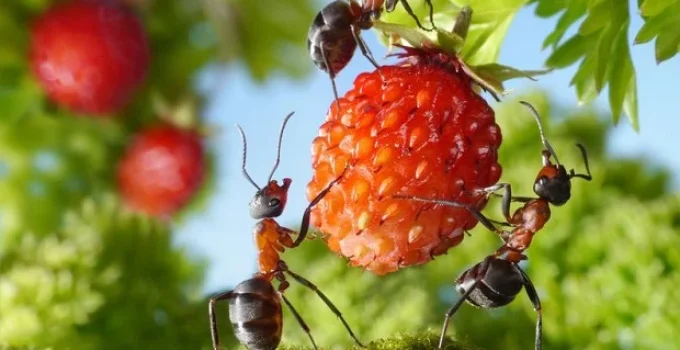How Long Do Ants Live?
The lifespan of an ant varies dramatically depending on its role in the colony—ranging from a few weeks to several decades. Worker ants typically live for a few months, while queen ants can survive for years, even decades in some species. Males, by contrast, have the shortest lives, often dying just days after mating.
🧭 Dive Deeper
- What Determines an Ant’s Lifespan?
- Lifespan by Ant Caste
- How Long Do Queen Ants Live?
- Why Do Ant Lifespans Vary So Widely?
- Table: Lifespan by Ant Caste and Species
- 🎯 Final Thoughts
- 📚 References
What Determines an Ant’s Lifespan?
Ant lifespan is influenced by several factors:
- Caste (queen, worker, or male)
- Species
- Environmental conditions
- Predation and threats
- Access to food and shelter
Ant societies divide labor sharply, and this biological “division of time” helps the colony function. Queens are built for longevity, while workers and males serve shorter, task-specific lives.
Lifespan by Ant Caste
Ant colonies consist of three primary castes, each with different lifespans:
- Queen Ants: The longest-living members. Their primary role is reproduction.
- Worker Ants: Sterile females that forage, care for brood, and maintain the nest.
- Male Ants (Drones): Their sole purpose is to mate with queens. They die shortly after.
📊 | Stat: In Lasius niger (black garden ant), queens can live up to 28 years, making them among the longest-lived insects ever recorded [1].
How Long Do Queen Ants Live?
Queen ants are the lifespan champions of the insect world. Studies show their longevity is supported by:
- Well-protected environments (deep underground or hidden nests)
- Specialized diets provided by workers
- Lower levels of oxidative stress due to limited activity
Notable lifespan examples:
- Lasius niger (black garden ant): 15–28 years [1]
- Formica rufa (wood ant): Up to 10 years
- Solenopsis invicta (fire ant): 5–7 years in natural colonies
Queens can produce thousands of eggs over their lifetimes, maintaining entire colonies for years.
Why Do Ant Lifespans Vary So Widely?
The dramatic differences in lifespan across castes are largely evolutionary:
- Males are expendable post-mating and aren’t built for long-term survival.
- Workers are designed for colony maintenance, not reproduction.
- Queens invest in longevity to ensure the colony’s stability and growth.
🧬 | Interesting fact: Queens and workers have the same DNA, but their lifespans differ greatly due to environmental cues and epigenetic changes during larval development [2].
Environmental threats like predators, harsh weather, or human activity can also shorten life expectancy, especially for foraging workers.
Table: Lifespan by Ant Caste and Species
| Species | Queen Lifespan | Worker Lifespan | Male Lifespan |
|---|---|---|---|
| Lasius niger | 15–28 years | ~1–2 years | ~1–2 weeks |
| Solenopsis invicta | 5–7 years | 2–6 months | ~1 week |
| Camponotus spp. | Up to 20 years | Several months | ~1 week |
| Formica rufa | Up to 10 years | ~1 year | ~1 week |
| Atta cephalotes | 10–15 years | ~6–10 months | ~1–2 weeks |
🎯 Final Thoughts
How long ants live depends heavily on their caste, species, and role within the colony. While worker and male ants have brief, utilitarian lives, queen ants can survive for many years, even decades, ensuring the continuity and success of the colony. This stark variation in lifespan is a hallmark of eusocial insect societies and a key to ants’ evolutionary success.
📚 References
- Keller, L., & Genoud, M. (1997). Extraordinary lifespans in ants: a test of evolutionary theories of ageing. Nature, 389(6654), 958–960. https://doi.org/10.1038/40130
- Yan, H., Opachaloemphan, C., Mancini, G., et al. (2017). An Engineered orco Mutation Produces Aberrant Social Behavior and Defective Neural Development in Ants. Cell, 170(4), 736–747.e9. https://doi.org/10.1016/j.cell.2017.06.051
- Tschinkel, W. R. (2006). The Fire Ants. Harvard University Press.
- Hölldobler, B., & Wilson, E. O. (1990). The Ants. Harvard University Press.
